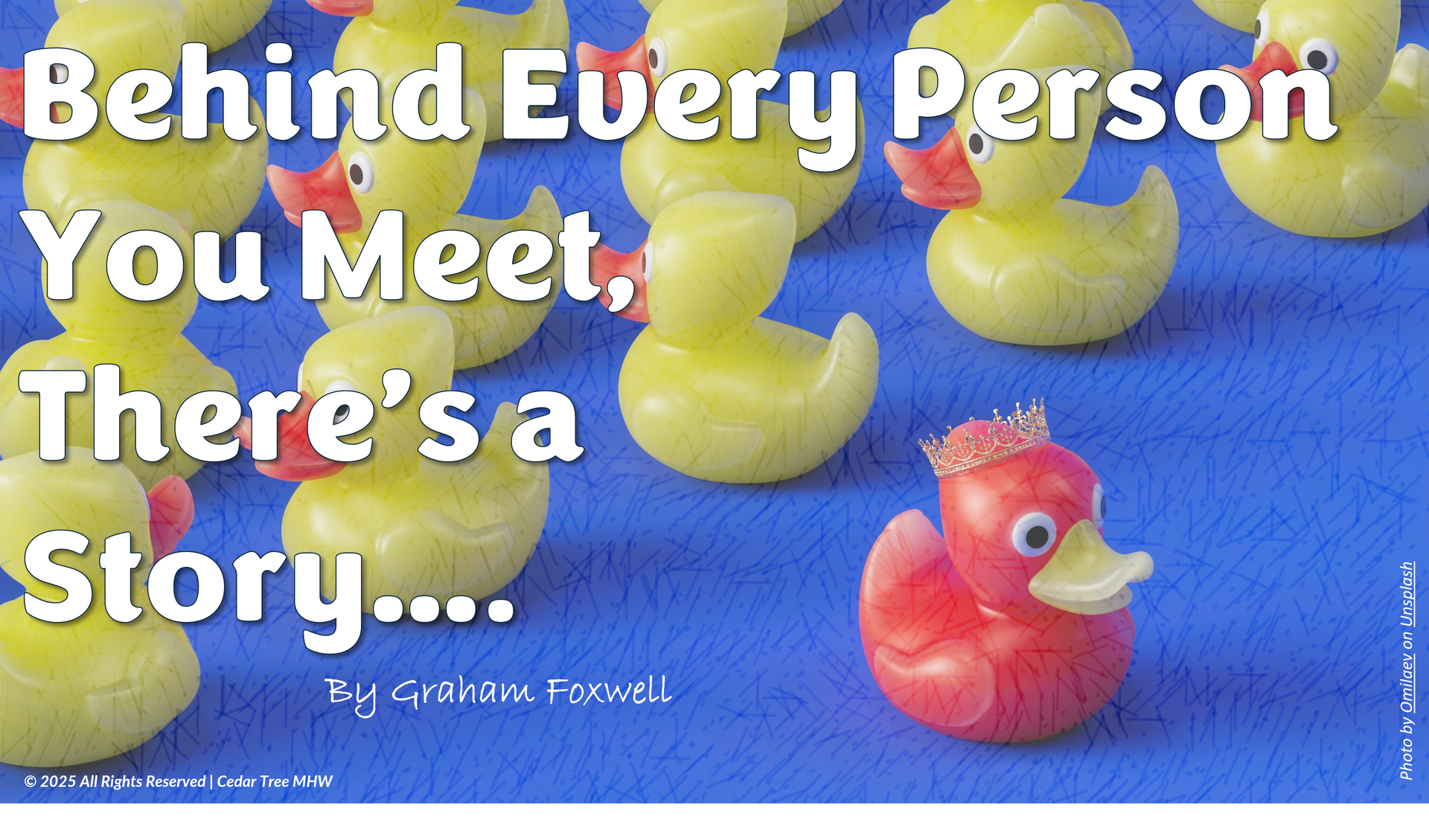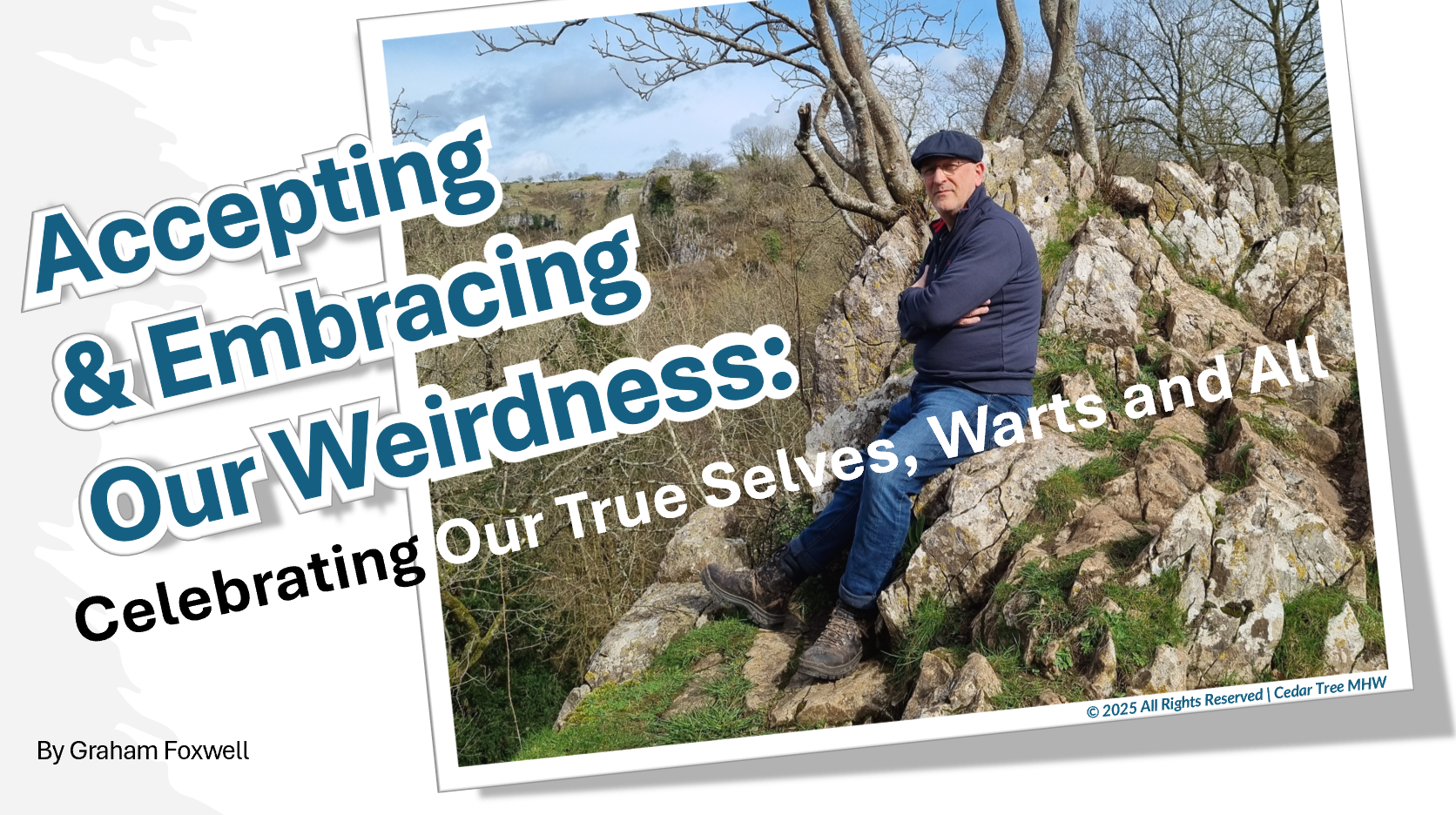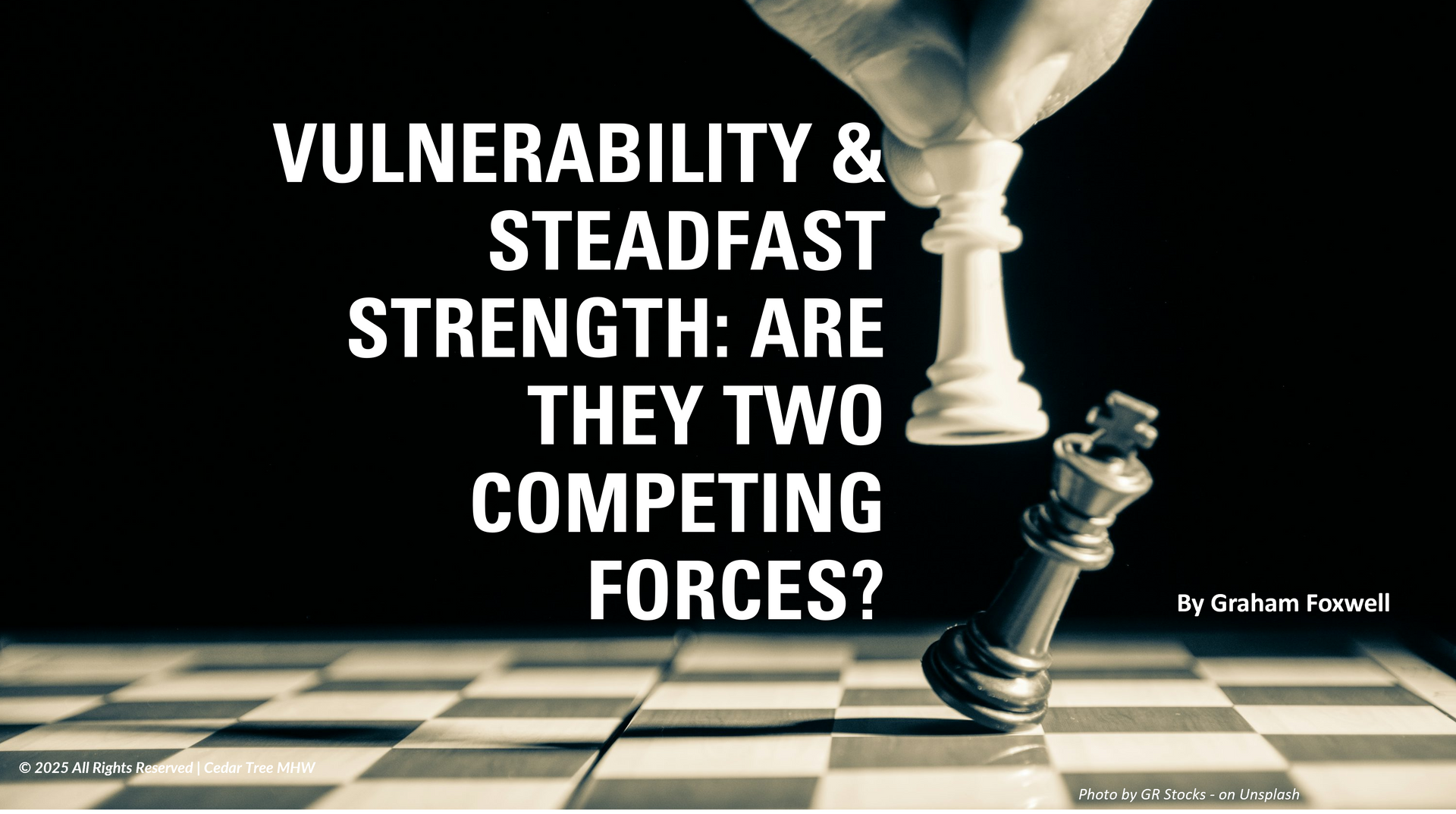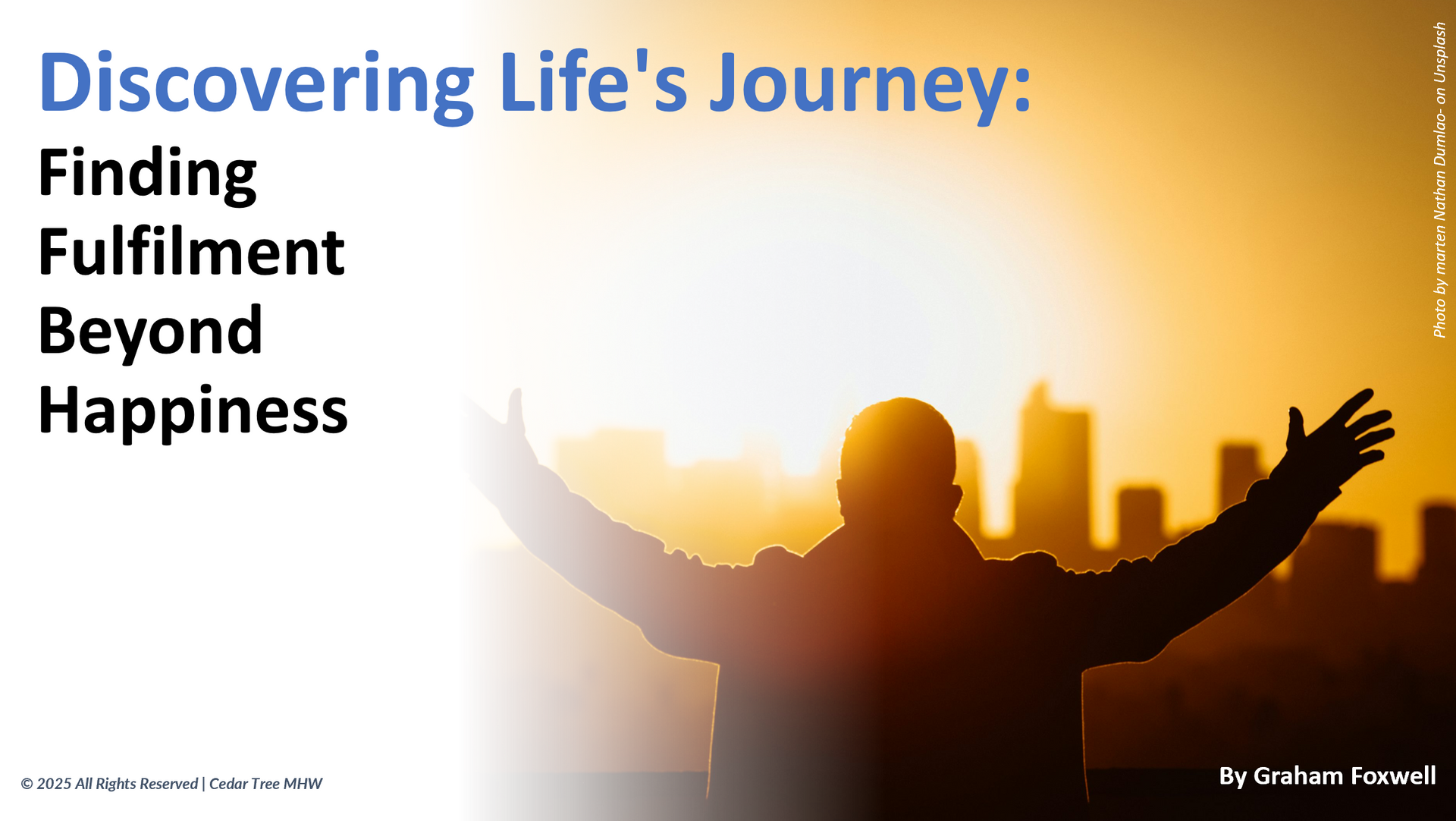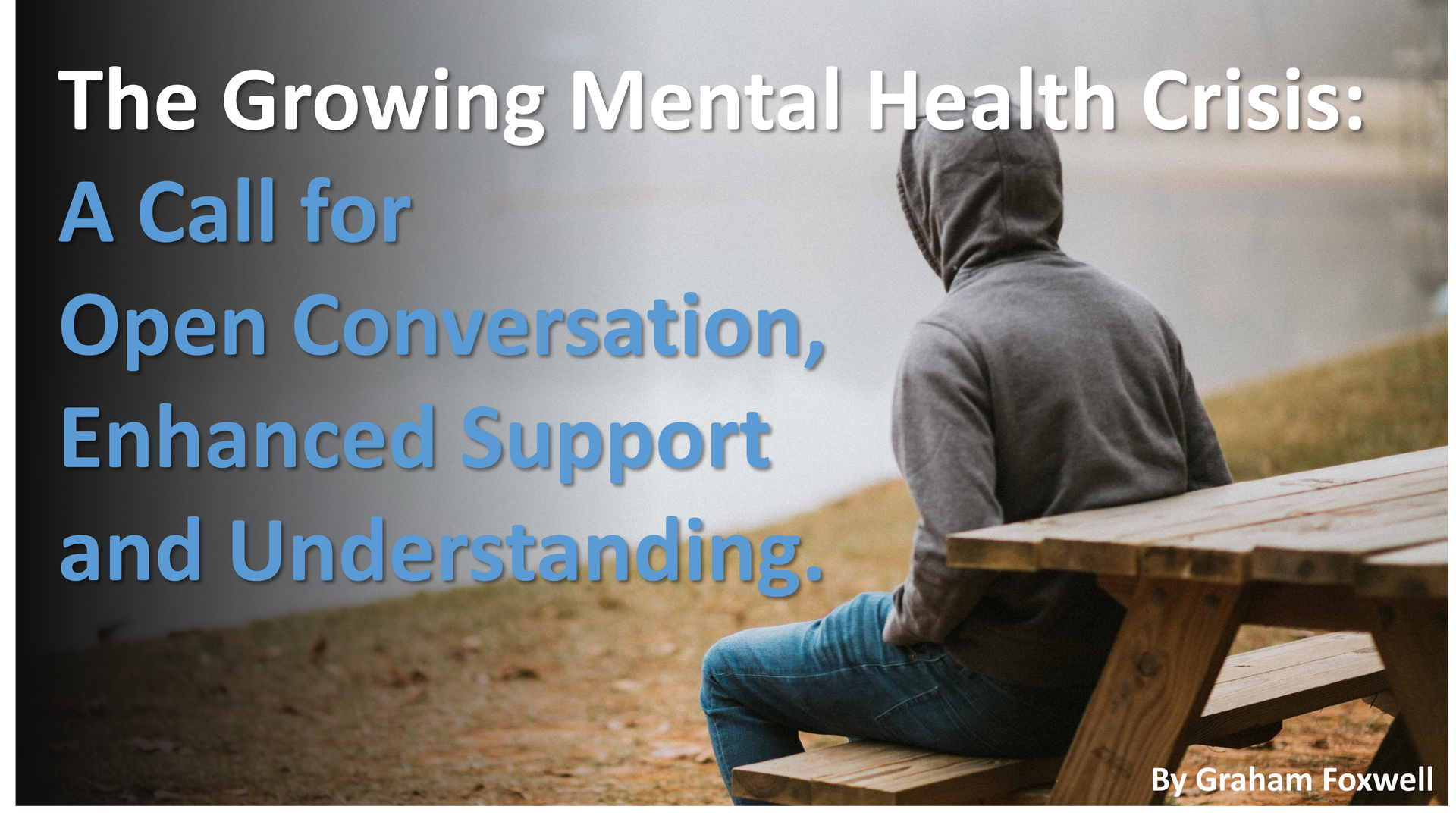Counteracting Toxic Masculinity: Empowering the Next Generation of Positive Men

Growing up, like many boys of my age, I was desperate to belong, and easily got caught up with the popular guys at school. My teenage years were a real struggle....
When I was about 11 years old, my life changed drastically. My parents separated, my sister left home, and my mum moved back to London to live with her parents, an hour away. I stayed with my dad, but our relationship was strained. He was grappling with his own struggles—alcohol, divorce, and mental health challenges, and eventually suffered a complete mental breakdown, leaving me to take on the role of his carer.
Even without the internet to amplify negativity, I still encountered influences that led me astray. I spent time with a group of lads whose behavior was far from ideal. Their version of masculinity, shaped by the late ’70s and early ’80s, was deeply toxic, and I found myself swept up in that destructive mindset.School wasn’t much better. I struggled academically and believed I was simply “thick.” It wasn’t until later that I learned I was dyslexic. The school system back then didn’t understand or accommodate this, but I eventually discovered that I was intelligent.... just in a different way!

Then, everything shifted. A youth worker, about ten years older than me, took me aside for a heartfelt, honest conversation. He offered me a choice: stay on the same destructive path or take a new direction filled with genuine guidance and support. It wasn't an easy decision, as I knew leaving my group of friends would invite bullying, but his words deeply resonated with me. I chose the better path, and that youth worker became one of my closest friends, a connection that lasted until his passing last year.
That pivotal moment has stayed with me and fuelled my passion for challenging toxic masculinity. Today, I’m committed to fostering a healthier, more inclusive perspective on masculinity and empowering the next generation to embrace positive change.

In our digital era, harmful ideas about what it means to be a man are seeping into the very spaces where young boys shape their identities. Toxic masculinity and the pervasive influence of the manosphere aren’t just abstract concepts, they actively mould how boys perceive strength, emotion, and relationships.
Instead of learning that true manhood embraces empathy, accountability, and inclusivity alongside strength, many are bombarded with messages that prioritise aggression and dominance, dismissing the power of vulnerability. This warped view of manhood carries serious consequences. It can spark mental health struggles, stunt the growth of meaningful relationships, and even deepen societal divisions. The impact goes far beyond the individual, it ripples through families, schools, and communities, slowly unravelling the social fabric that binds us together.
Given these pressing challenges, it’s clear we need to act now. By dismantling these harmful narratives and promoting a compassionate, inclusive model of masculinity, we can empower young boys to grow into positive contributors to society. This transformation calls for a united effort, a collaboration among educators, parents, community leaders, and digital platforms, to reshape the narrative around manhood and create a safer, healthier environment for future generations.
I believe these fall in to a multi-pronged approach to promoting positive masculinity. However, please feel free to challenge, add or agree with this.

A Multi-Pronged Approach to Positive Masculinity
1. Revamp Education and Media Literacy
Integrate an Inclusive Curriculum: Schools should weave lessons on emotional intelligence, gender equality, and critical thinking into everyday learning. By unpacking the complexities of human emotions and relationships, young people can develop well-rounded perspectives that challenge outdated stereotypes.
Teach Media Literacy: Equipping students with the skills to critically assess online messages helps them spot and reject harmful content. By understanding extremist rhetoric and recognising biases in digital media, young boys can form their own informed opinions rather than simply absorbing toxic narratives.
2. Cultivate Positive Role Models and Mentorship
Showcase Positive Masculinity: Celebrating figures who embody empathetic, inclusive, and responsible manhood, such as Sir Gareth Southgate, Mo Farah, Idris Elba, and Marcus Rashford, or even local community heroes, gives young men tangible examples of true strength. These role models demonstrate that emotional openness, humility, and compassion are the hallmarks of positive leadership.
Support Mentorship Programs: Establishing mentorship channels in schools, community organisations, or sports clubs connects young men with adults who live out healthy, respectful behaviours. These mentors provide guidance and create safe spaces, proving that asking for help is a strength, not a weakness.
3. Strengthen Family and Community Bonds
Encourage Open Dialogue: Families are our first and most influential teachers. When parents engage in genuine, judgment-free conversations about todays challenges, discussing everything from toxic masculinity to radical influences, they help shape resilient, respectful, and self-aware individuals.
Develop Community Programs: Community centres and local clubs can host activities that promote teamwork, creativity, and compassion. These safe spaces offer young people genuine connection and build a network of support that reinforces positive ideas about manhood and identity.
4. Reform Digital Spaces and Public Discourse
Hold Platforms Accountable: Social media companies must step up by moderating harmful content and fine-tuning algorithms that boost extremist messages. By reducing exposure to toxic narratives, digital spaces can become hubs for positive, constructive exchanges.
Promote Alternative Narratives: Public campaigns and community outreach that celebrate accountability, respect, and collaboration help reshape cultural discourse. These narratives remind us that true strength lies in personal growth, mutual support, and a willingness to learn from one another, not in dominance or aggression.
5. Prioritise Mental Health and Well-Being
Provide Accessible Support: Destigmatising mental health, especially for young men, is essential. Schools, communities, and workplaces should offer accessible counselling and support services to ensure anyone grappling with identity or pressure can find timely help.
Emphasise Resilience and Self-Care: Teaching young people that true resilience means seeking help, reflecting honestly, and building healthy coping strategies can transform lives. A focus on self-care and mindfulness is crucial to counterbalancing the pressure to conform to outdated masculine ideals.

In Conclusion
It is a well know fact that even a single trusted adult in a child's life can mitigate the impact of adverse childhood experiences (ACEs) and curb the onset of poor mental health later, all while nurturing positive masculinity. I stand as living proof of this transformative influence.
Transforming our cultural view of masculinity starts with empowering young boys to define strength on their own terms.
By investing in education, mentorship, family support, digital reform, and mental health resources, we can steer our communities toward a future where men are celebrated for their empathy, resilience, and capacity to nurture healthy relationships.
So my question is - How can you contribute through your workplace, community, or personal networks to foster a balanced, positive understanding of manhood?
Lets work together to build an inclusive future where positive masculinity thrives.
NOTE: Graham is available to give talks and training on this subject and others. Please get in touch here: https://www.cedartree-mhw.co.uk/guestspeaker-gf
Thank you for reading this.
Please feel free to add your comments and share.
Graham
#PositiveMasculinitynbsp; #Empowermentnbsp; #InclusiveLeadershipnbsp; #RoleModelsnbsp; #DigitalReformnbsp; #MediaLiteracynbsp; #MentalHealthMattersnbsp; #CommunitySupportnbsp; #EducationForAllnbsp; #BreakTheCycle #Cedartreemhw
(c) 2025 Cedar Tree MHW - https://www.cedartree-mhw.co.uk/
